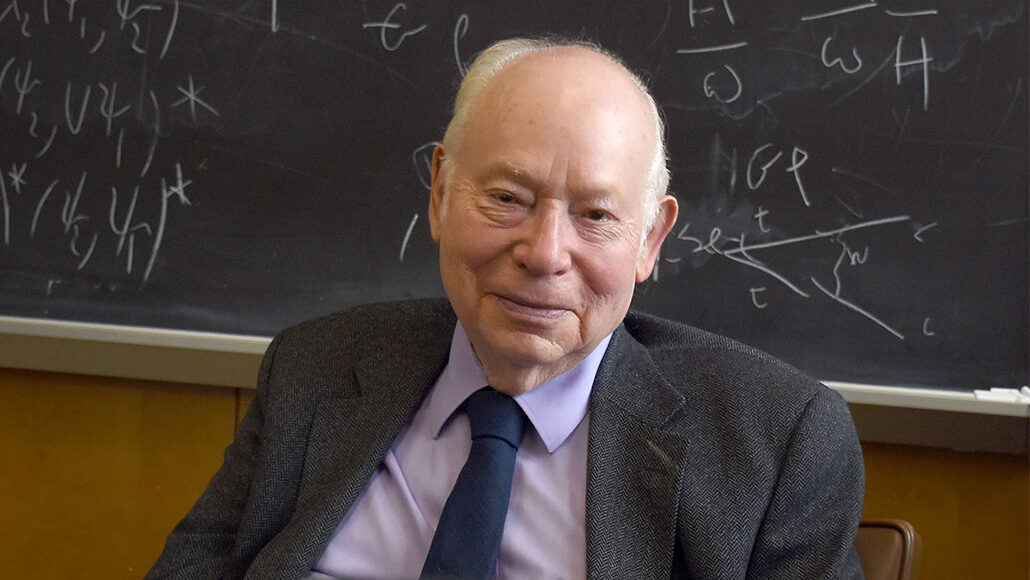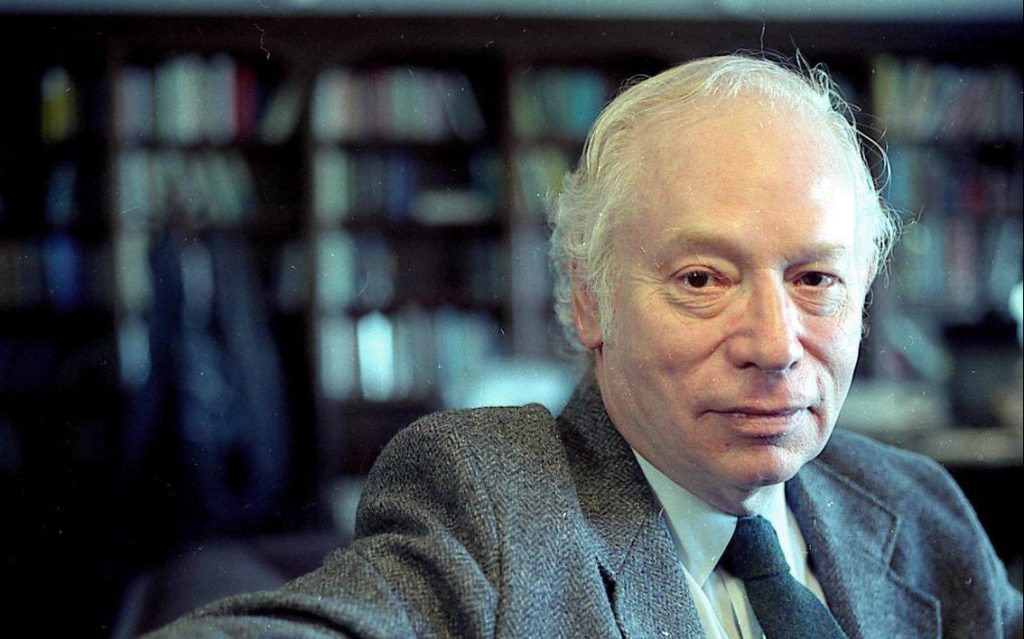
Steven Weinberg: A physicist who found religion 'an insult to human dignity'
The remarkable and most influential particle physicist Prof Steven Weinberg died at the age of 88 on July 23 at Austin, Texas. The world of physics would unreservedly acknowledge that it is a great loss for the community across the world.

The remarkable and most influential particle physicist Prof Steven Weinberg died at the age of 88 on July 23 at Austin, Texas. The world of physics would unreservedly acknowledge that it is a great loss for the community across the world.
Weinberg shared the Nobel prize for Physics in 1979 with Sheldon Glashow of Harvard, USA and Abdus Salam of Imperial College, London, UK, for his discovery of the Unified Theory of Weak and Electromagnetic Interactions. He was the Director of Theory Research Group as well as Jack S Josey-Welch Foundation Chair in Science and Regental Professor at the University of Texas at Austin.
He moved to Austin in 1982 from Harvard and was instrumental in developing the High Energy Physics Group there. His outstanding research on elementary particle physics and cosmology got him the Nobel Prize in Physics, the National Medal of Science, and American Philosophical Society awarded Benjamin Franklin Medal, J Robert Oppenheimer Prize, and many other awards.
He has been elected to the National Academy of Science and Britain’s Royal Society and other academies and holds sixteen honorary doctoral degrees from Internationally well-known Universities. The list of awards, honours, memberships of societies runs into several pages in his bio.
He has written more than 350 publications of great repute and 15 books. These books include his exposition in three volumes of ‘The Quantum theory of Fields’, ‘Gravitation and Cosmology – Principles and Applications of the General Theory of Relativity,’ which are used like the bible by all graduate students interested in pursuing research in high energy physics, gravitation or astrophysics. He has more than 50,000 citations, many of which are classified as highly influential.
His extraordinary explorations into these complex subjects resulted in books like ‘The first three minutes: A modern view of the origin of the Universe,’ which has been translated into 22 languages, including Tamil, and ‘Dreams of a final theory’ (translated into 16 languages). His latest book, ‘To explain the world’, published in 2015, brings out his deep commitment to understanding nature and its laws.
Rationalist who spoke his mind
Weinberg was a rationalist and spoke against irrational anti-science ideas without hesitation. This led him to write the book ‘Facing Up: Science and its Cultural Adversaries’.
He was associated with the following well-known quotation:
“With or without religion, good people can behave well and bad people can do evil; but for good people to do evil—that takes religion. Religion is an insult to human dignity. Without it, you would have good people doing good things and evil people doing evil things.”
Steven Weinberg was an atheist and firmly committed to the science and expressed his view on religion and God fearlessly:
“Science does not make it impossible to believe in God, it just makes it possible not to believe in God.”
Also read: Who ordered muon? Physicists awaiting a Higgs boson-like discovery
Before he became a defender of the Big Bang theory, Weinberg stated: “The steady state theory is philosophically the most attractive theory because it least resembles the account given in Genesis.”
I had personal interactions with him a couple of times. The first was when I visited Texas University at Austin in the late 1980s, at the invitation of another great physicist, ECG Sudarshan, and I eagerly took part in Weinberg’s lectures on quantum mechanics.
When I missed one of his lectures, I wanted to get his notes to follow. Just ahead of me, another faculty who approached him for the same reason was bluntly refused; he refused to part with his couple of sheets. I hesitated and turned back without trying but he called out to me. To my surprise, he allowed me to copy his sheets.
A decade later, I attended his lecture at Trinity College, Dublin. At the end, another devoted Indian asked for Weinberg’s opinion about ancient Indians having achieved the speed of light, and details of atoms mentioned in the Vedic literature. His answer: “I do not believe these, since the equipment, machinery and technologies required for doing this were not available at that time. They are only cheating people.”

Priorities for science
Steven Weinberg’s knowledge of various philosophical questions on display were impressive. Probably one can characterize his thinking as ‘positivist’.
In the late 1980s, there were serious efforts at building a superconducting super collider (SSC) in Texas, proposed by Leon Lederman, Nobel laureate of ‘God Particle’ fame. Weinberg was on the Science Policy committee for the SSC. He argued vehemently in favour of the project.
After spending $2 billion, the programme was cancelled due to opposition from Republican senators. They were also backed by other prominent scientists like the Nobel Laureate PW Anderson from the field of Condensed matter physics, who probably thought that it would be a drain on resources available for other fields of research.
Weinberg was disappointed with the cancellation. The result was that the rivals in Europe achieved the construction of Large Hadron Collider (LHC) at Geneva, which made fantastic discoveries that led to the discovery of the Higgs particle.
In a 2021 interview, physicist Roy Schwitters, accelerator expert from University of Texas, speculated that had the project been completed, it would have led to the discovery of the Higgs boson particle 10 years prior to its eventual discovery in Switzerland.
Incidentally, Schwitters left a professorship at Harvard when he was assigned to oversee the project as SSC laboratory director in 1989.
Weinberg recalled, “During the debate over the SSC, I was on the Larry King radio show with a Congressman who opposed it. He said that he was not against spending on science but that we had to set priorities. I explained that the SSC was going to help us learn the laws of nature, and I asked if that did not deserve a high priority. I remember every word of his answer. It was ‘No’.”
Against arms race
Weinberg seriously felt that the US withdrawal from Anti-Ballistic Missile Treaty would lead to an arms race. He joined a group of 50 intellectuals/scientists who asked the US Congress not to support funding for missile components which would result in violations of the treaty.
“There is a general sense that the treaty is part of a set of arms control agreements that have preserved the strategic stability of the world for 40 years, and that it, as such, is very valuable. It signals to Russia and to the rest of the world that the United States is not about to restart the arms race.” Unfortunately, US precisely did that in 2001.
Steven Weinberg called himself as liberal. Like many US liberals, he also backed Israel in its actions against Palestine. Many universities in UK backed the call to boycott Israel when serious inroads were made in settling people in West Bank. That included people like Hawking. He cancelled many visits to UK universities because of this.
Also read: Remembering Raman: Physicist who demystified science, taught by example
He was also part of somewhat notorious American think tank known as the Jason Committee. The physicists from this committee played an active role during the Vietnam war in the war efforts. They faced several protests all over the world from others within the academic community.
However, it is not clear whether Steven Weinberg played any role at that time. In spite of all these, he was a greatly respected physicist, especially for his support for using modern science for the welfare and development of human society.
Weinberg was critical of doubters of climate change. He remarked after receiving an honorary doctorate from Rockefeller University, “It is generally foolish to bet against the judgements of science, and in this case of climate change, where the planet is at stake, it is insane.”
His publications, books and lectures inspired a whole generation of scientists, philosophers and young students, and his demise is a great loss to science and the world.
(Prof. T.R. Govindarajan is Professor (Retd), Institute of Mathematical Sciences, Chennai.)


